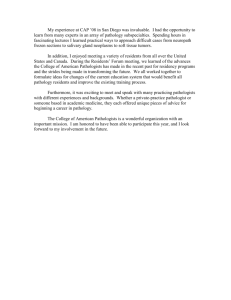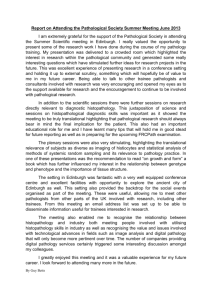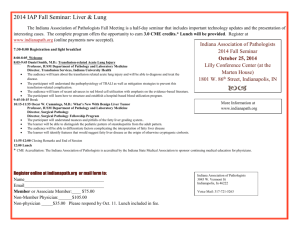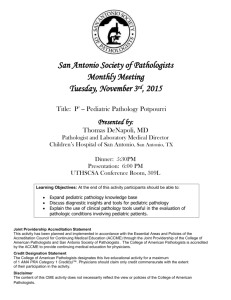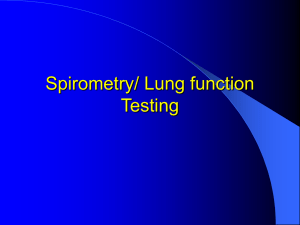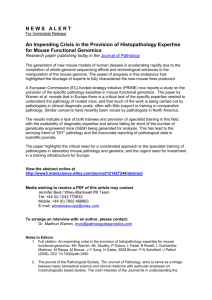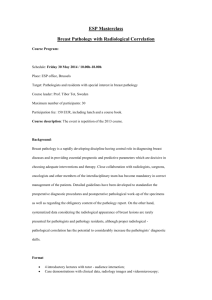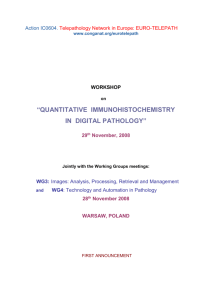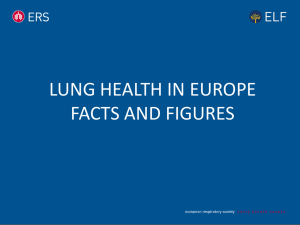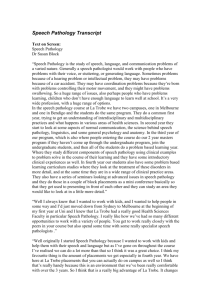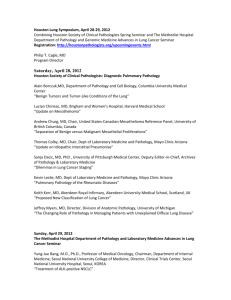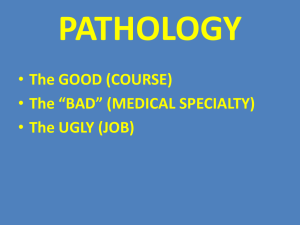World conference on Lung Cancer by the International Association
advertisement
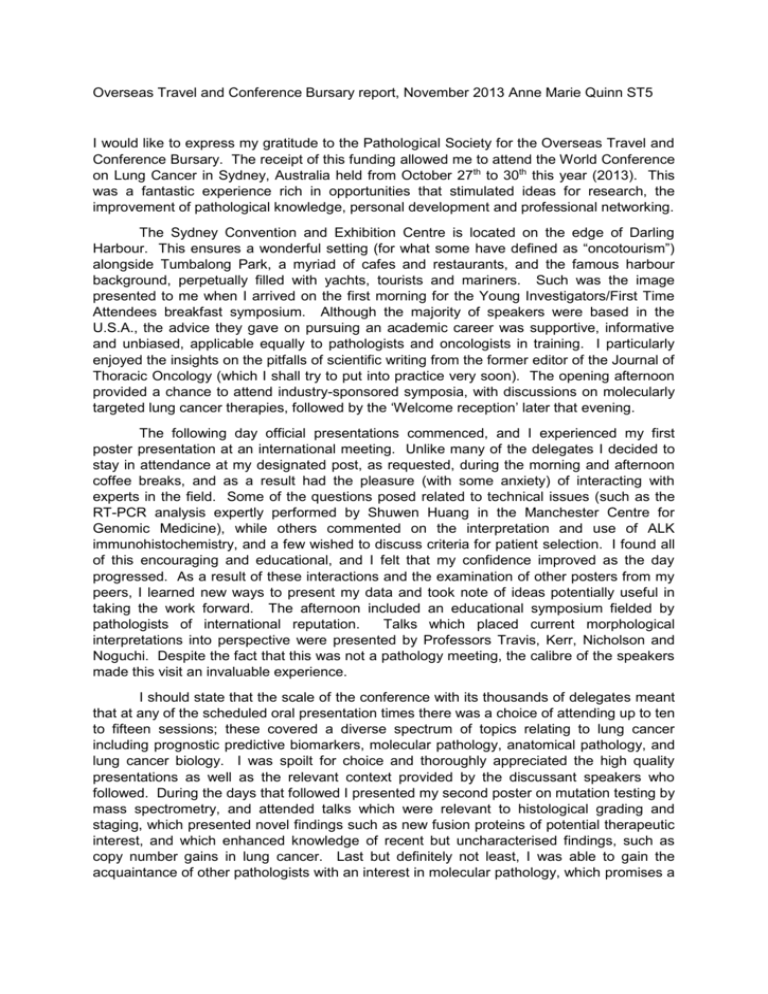
Overseas Travel and Conference Bursary report, November 2013 Anne Marie Quinn ST5 I would like to express my gratitude to the Pathological Society for the Overseas Travel and Conference Bursary. The receipt of this funding allowed me to attend the World Conference on Lung Cancer in Sydney, Australia held from October 27th to 30th this year (2013). This was a fantastic experience rich in opportunities that stimulated ideas for research, the improvement of pathological knowledge, personal development and professional networking. The Sydney Convention and Exhibition Centre is located on the edge of Darling Harbour. This ensures a wonderful setting (for what some have defined as “oncotourism”) alongside Tumbalong Park, a myriad of cafes and restaurants, and the famous harbour background, perpetually filled with yachts, tourists and mariners. Such was the image presented to me when I arrived on the first morning for the Young Investigators/First Time Attendees breakfast symposium. Although the majority of speakers were based in the U.S.A., the advice they gave on pursuing an academic career was supportive, informative and unbiased, applicable equally to pathologists and oncologists in training. I particularly enjoyed the insights on the pitfalls of scientific writing from the former editor of the Journal of Thoracic Oncology (which I shall try to put into practice very soon). The opening afternoon provided a chance to attend industry-sponsored symposia, with discussions on molecularly targeted lung cancer therapies, followed by the ‘Welcome reception’ later that evening. The following day official presentations commenced, and I experienced my first poster presentation at an international meeting. Unlike many of the delegates I decided to stay in attendance at my designated post, as requested, during the morning and afternoon coffee breaks, and as a result had the pleasure (with some anxiety) of interacting with experts in the field. Some of the questions posed related to technical issues (such as the RT-PCR analysis expertly performed by Shuwen Huang in the Manchester Centre for Genomic Medicine), while others commented on the interpretation and use of ALK immunohistochemistry, and a few wished to discuss criteria for patient selection. I found all of this encouraging and educational, and I felt that my confidence improved as the day progressed. As a result of these interactions and the examination of other posters from my peers, I learned new ways to present my data and took note of ideas potentially useful in taking the work forward. The afternoon included an educational symposium fielded by pathologists of international reputation. Talks which placed current morphological interpretations into perspective were presented by Professors Travis, Kerr, Nicholson and Noguchi. Despite the fact that this was not a pathology meeting, the calibre of the speakers made this visit an invaluable experience. I should state that the scale of the conference with its thousands of delegates meant that at any of the scheduled oral presentation times there was a choice of attending up to ten to fifteen sessions; these covered a diverse spectrum of topics relating to lung cancer including prognostic predictive biomarkers, molecular pathology, anatomical pathology, and lung cancer biology. I was spoilt for choice and thoroughly appreciated the high quality presentations as well as the relevant context provided by the discussant speakers who followed. During the days that followed I presented my second poster on mutation testing by mass spectrometry, and attended talks which were relevant to histological grading and staging, which presented novel findings such as new fusion proteins of potential therapeutic interest, and which enhanced knowledge of recent but uncharacterised findings, such as copy number gains in lung cancer. Last but definitely not least, I was able to gain the acquaintance of other pathologists with an interest in molecular pathology, which promises a future of possible academic collaborations and shared ideas, and can only be of benefit as a reporting pathologist. Thank you for this bursary. I have acknowledged this support and displayed the Pathological Society logo on both of my posters. Anne Marie Quinn ST5 Histopathology, Conference attended during out of programme for research year in Manchester Centre for Genomic Medicine, St. Marys Hospital, Oxford Road, Manchester.
